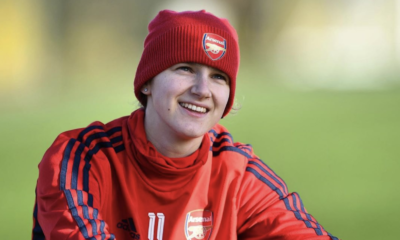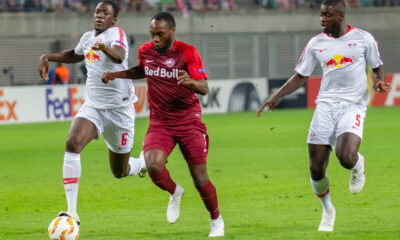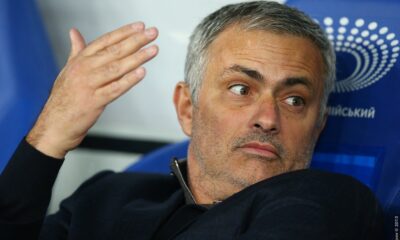All Sports
The Story Behind Athletic Bilbao
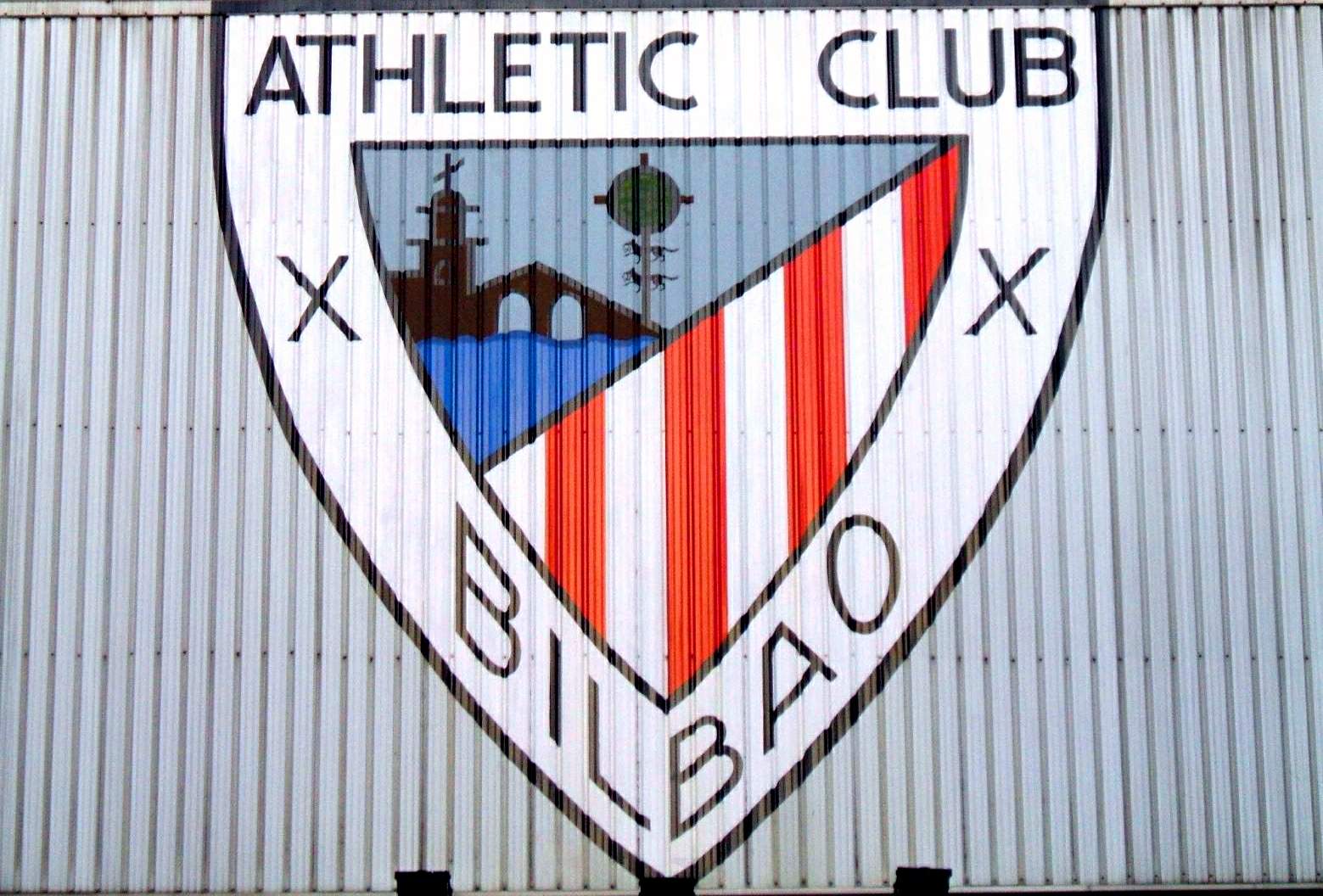
How Athletic Bilbao have become football’s most unique club
The story behind Athletic Bilbao
In a sport which rarely differs from the norm, the story behind Athletic Bilbao is a captivating and refreshing one. Bilbao’s focus on tradition and community has resulted in a club which feels more like a family than an organisation. The team’s link with Johan Cruyff as well as notable fights with Barcelona, the history of “Los Leones” (The Lions) is littered with surprises.
Despite their unique approach to the game it is important not to overlook the genuine achievements of the team. Being the fourth most successful team in Spain and one of the few never to be relegated is one mean feat. Aside from their on field achievements, through their history, ideology and fans Athletic Bilbao have created one of the most likeable clubs anywhere in the world.
??????.
©️ @IkerMuniain10 #AthleticClub ? pic.twitter.com/caE1AyM79V
— Athletic Club (@Athletic_en) September 6, 2020
History
For a club that focuses heavily on creating homegrown talent, it is shocking that Athletic’s foundations actually come from England. Much like Barcelona, the English had a profound impact on the creation and early identity of Athletic Bilbao. The story of Athletic Bilbao started when a group of English dockworkers brought football to northern Spain.
The impact of the English is still a prevalent feature of Bilbao, not least their name. Traditionally Spanish clubs use the term “Atletico”, however during the formation of the club, the word was anglicised to “Athletic”. Similarly, the adored red and white striped kit originated from 50 Southampton FC kits that dockworkers brought with them to Spain. When Athletic Bilbao needed a kit for their first game, the dock workers leant their Southampton outfits to the team. As a result of the sheer amount of Englishmen living in Bilbao, the team adopted a British style of football. A long run of English managers created a physicality that lead them to their first major trophy in 1903.
The Athletic Bilbao team that won the first ever Copa del Rey, 1903 pic.twitter.com/w6TGqhPH8J
— The Antique Football (@AntiqueFootball) April 16, 2014
Multiple successes followed in the years after 1903, that was until the outbreak of the Spanish civil war in 1936. Although it is not rare for politics to impact sport, the attack on Bilbao’s team during this period does raise an eyebrow. Athletic Bilbao were singled out by Franco and made to de-anglicize their name, becoming “Athletico Bilbao”. The war resulted in a financial and identity crisis for what was one of the strongest teams in Spain. In the years immediately pre-dating the war, Bilbao faced one of the weakest periods in their history.
By the 1950s, Athletic Bilbao had returned to both their former name and glory. During this decade the infamous “Eleven Villagers” stunned Real Madrid in the Copa del Rey final of 1958. The 1958 final is still one of the grandest days in Bilbao’s long history. Not only did Real Madrid field a team full of Spanish legends such as Alfredo De Stefano, but Bilbao’s was purely academy graduates. The victory lead to manager Guzman remarking “We only needed eleven villagers to beat them”.
In more recent history, Athletic Bilbao have not won a major trophy since 1984. The 1980s however was a period in which Bilbao were constantly one of the strongest teams in Spain. Throughout the early 1980s, Bilbao returned to an extremely physical style of football , which other teams in Spain could not live with. The aggressive tactics used by the Basque team rattled their opposition and “the lions” were genuinely feared across Spain.
This ferocious way of playing football came to a head in the final of 1984. Playing against a star studded Barcelona side, Athletic Bilbao set out to physically impose themselves on players who were much more gifted than themselves. They bullied Barcelona from minute one, specifically Diego Maradona, who arguably was kicked more than the football itself. Maradona took particular offence to a remark by Bilbao player, Sola and sparked a huge brawl involving nearly everyone on the pitch at the time. Maradona did have previous with Bilbao as the aptly named “Butcher of Bilbao”, Andoni Goikoetxea broke his ankle in a previous meeting. The brawl showed both Maradona’s unpredictable temperament and the willingness Athletic had to fight dirty. Nevertheless, the victory will always be engraved in Athletic’s history.
Since the turn of the century, Athletic Bilbao’s form has been extremely mixed. Some seasons fans are treated to glimmers of brilliance where Bilbao can compete with the likes of Barcelona. Equally, there have been seasons where the club has only marginally avoided relegation. However, in the last 20 years Bilbao have registered to massive achievements. There first was the formation of Athletic Bilbao Women in 2002, who went on to be incredibly successful, winning three league titles in a row. Another huge boost for the club was moving into their spectacular new home, San Mames Stadium. The stadium opened in 2013 and is one of the best looking footballing cathedrals in Europe.
Looking back at the varied history of Bilbao, one finds a team that although successful, thrives of being an underdog. They value their identity almost as highly as their trophy cabinet and see this as a strength. At Athletic Bilbao, a club has been created which is easy for a neutral to fall completely in love with.
Athletic Bilbao wins its first trophy since 1984, beating Barcelona for the Spanish Super Cup: http://t.co/Me84DafRic pic.twitter.com/W1pKuRbOay
— Planet Fútbol (@si_soccer) August 17, 2015
Transfers and Academy
Bilbao’s transfer policy is what truly makes them such a unique and intriguing club. In short, since 1911 the club has prided themselves on only having players from the Basque region in their squad. Putting this into context, Bilbao can pick players from a region that has roughly the same population as West Yorkshire. Evidently, this means their transfer market is significantly smaller than any other club in the world, seen in the fact that Bilbao have only spent over £12 Million twice. For Athletic Bilbao, transfers are an unessential aspect of football.
To the people on the inside their transfer policy is seen as the very thing that makes Athletic Bilbao successful, the defining factor in what makes them unique. Joseba Etxeberria who made over 500 appearances for “Los Leones” hailed the philosophy behind the club. He states “maybe on a sporting level we do not stand out much, but all the players come from here, so the distance between the fans and players is much smaller”. As he alludes to, the togetherness of the club is extremely strong, notably stronger than rival teams. In addition, fans feel genuinely connected to the club not only because it stands for the same principles as the surrounding area but also due to the remarkable fact that almost every family in the region would know somebody who will have played for Bilbao at some level.
5/9 – On this day in 1977 was born Joseba Etxeberria. Only José Ángel Iribar (466) has played more LaLiga games for @Athletic_en than him ever (445). Mythical. pic.twitter.com/obJjqPrmBn
— OptaJose (@OptaJose) September 5, 2020
Modern football has gradually put a higher emphasis on club image, a shift which has only played into Bilbao’s hands. Teams such as Everton have been criticised for bulk buying players without having a direction or team identity; Athletic Bilbao will never face such an issue due to their clear and non-negotiable style of recruitment. Such an advantage is further increased due to the specific style of Basque footballers. Even if a player is bought in from another team they would typically have the Basque style of football allowing them to easily slot into the Bilbao team. The story of Bilbao highlights how “Less is more” can often ring true.
Despite their family oriented mentality, Bilbao are not afraid to flex their financial muscle and have shown on more than one occasion their capability to be very shrewd in business. The main financial weapon that Athletic have is the facility to pay players an extremely high wage. This is made possible by Bilbao’s inactivity in the transfer market. Their bitter Basque rivals, Real Sociedad, have lost many players to the higher paying Bilbao. Similarly, dynamic forward Inaki Williams, has recently made headlines across Europe after he signed a nine year contract with Athletic. Such a long contract is virtually unheard of today and although his love for the club is strong, the £3 Million Bilbao pays him per year certainly helped make up his mind.
— IÑAKI WILLIAMS (@Williaaams45) June 8, 2020
Such a style of recruitment is only sustainable because Athletic Bilbao have one of the best academies in world football at their disposal, Lezama. Sitting high in the hills above Bilbao, the academy is disconnected from the rest of the city. At Lezama, children as young as ten are given their footballing education, often surrounded by the first team who even stay there before games. The academy simultaneously reinforces the family orientated ethos of the club while also giving “students” the opportunity to interact with their idols. This mix of ingredients has created a success rate which is genuinely staggering. For every 20 ten year old children that join their academy, two will go on to start for Bilbao. This statistic is fundamentally what fuels Athletic Bilbao; their academy is so strong that their limited activity in the transfer market pales into insignificance.
The success of Bilbao’s academy has lead to the an arrogance when it comes to players leaving. Whenever a member of the squad decides to leave Bilbao the club never panics and as graduate of Lezama, Andoni Ayarza states “Other players step up and become just as important, or even more”. This is seen in the recent sale of Kepa, who was viewed as a big loss at the time. However, Bilbao’s new number one, Unai Simon has been superb, knocking heavily on the door for a Spanish call-up. The academy constantly provides talent strong enough to replace those in the first team.
It is through the Lezama academy that the unlikely link between Athletic Bilbao and footballing legend Johan Cruyff was made. Cruyff is one of the greatest talents to have ever graced the game of football, so praise from him should be taken extremely seriously. Cruyff was so impressed by the talent produced from Lezama that as a manager he adopted a policy of having one Basque player in every squad he managed, showing just how respected the academy is across football. Cruyff’s policy emphasises not only the quality of the Lezama’s players but also their original playing style.
Fans
The story behind Athletic Bilbao is hugely influenced by their passionate and localised fanbase. While they cannot claim to mirror the noise created by Celtic fans nor the intimidation imposed on away team at Red Star Belgrade, the club has a connection with their fans which is unlike anything else in professional football.
It would not be rare for a fan of Bilbao to know or have known a first team player. This alone bridges the sometimes wide gap between players and fans, which Athletic see as a huge strength. The gap is further bridged as a result of the transfer policy. The “Basque Only” rule means that most of the Bilbao players will have grown up supporting the team. This allows the players to recognise how much each game means to the fan-base and is one of the reasons why the work rate at Bilbao is generally regarded as very high.
One of the pivotal moments in the story behind Athletic Bilbao came via a celebration in 1984. “La Gabarra” (The Barge) is a historic victory parade which embodies the extreme support that surrounds “Los Leones”. The celebration came after the infamous 1984 Copa Del Rey final and involved a gigantic barge. Rather than flooding the streets like a traditional victory parade, over one million Bilbao fans boarded boats and sailed down the river to cheer their victorious team, with one barge being particularly huge. Remarkably, the Basque region only has a population of 2 Million, meaning half of the surrounding area attended the team’s celebration. While every fanbase feels attached to their team, it is rare, especially in modern football, for fans to have such a genuine affection and connection to the eleven players on the pitch.
While other teams celebrate winning titles by going on a open-top bus ride through the city. Athletic Club historically have done it by going on a open-top boat ride through the city. On La Gabarra. pic.twitter.com/Zy7cdenEZi
— Alexandra Jonson (@AlexandraJonson) September 7, 2020
The story behind Athletic Bilbao shows how they are genuinely a team unlike any other on the planet. Their success is credit to the club’s organisation and traditions. Their history is glittered with amazing moments and the team will hope that the Copa Del Rey final this December will give them their first bit of silverware in over 30 years. With modern football increasingly becoming a business a team like Athletic Bilbao is an essential reminder of how teams can run as a family. Football fans around the world should look at their upcoming final with optimism that it can springboard this plucky team from Spain back to the heights of yesteryear.
We hope you enjoyed “The story behind Athletic Bilbao”. Would you like your team to follow a tradition like the “Basque only” rule.
Read more on football here:
-

 News4 weeks ago
News4 weeks agoThe Best Male Tennis Players of All Time
-

 Football3 weeks ago
Football3 weeks agoPlayers with the most goals in a Premier League season
-

 Football4 weeks ago
Football4 weeks ago10 of the most underrated footballers in the world right now
-

 News3 weeks ago
News3 weeks agoThe Fastest Rugby Players Ever
-

 Football3 weeks ago
Football3 weeks agoChelsea’s Possible Lineup For Next Season
-

 Football3 weeks ago
Football3 weeks agoWho is the Fastest Football Player in the World?
-

 Football3 weeks ago
Football3 weeks agoThe Best Penalty Takers of All Time
-
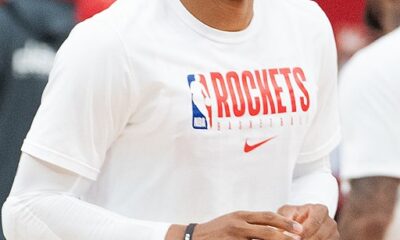
 Basketball4 weeks ago
Basketball4 weeks agoThe 5 Biggest NBA trades so far this off-season


